|
It’s been a tumultuous month in the world of bucket list experiences. The New York Times art critic ran a story about the sheer and utter disappointment of seeing the Mona Lisa, glassed away from the masses of crowds expecting something more...transcendent. Asked on national radio about my own experience with Leonardo’s masterpiece, I recalled seeing it many years ago, and feeling distinctly underwhelmed: “I thought there would be God rays and confetti, and angels would be singing with harps.” If I didn’t know it was regarded as the pinnacle of artistic expression, I would have walked past it, marvelling at plenty other works in the Louvre that would better match that description. The subject moved onto travel experiences that are disappointing. Each to their own, but there’s really only a few factors that will make an activity or destination disappointing:
All this to say: The experience did not live up to your expectations. The higher your expectations, the higher the chance that the destination or activity will disappoint you. Reality simply can’t compete with your imagination. And I can’t blame anyone for having an imagination stoked by the most perfect of all scenarios. On television shows, in travel articles, in books (ahem), you rarely see or hear about crowds, costs, and crap weather. The sky is mostly blue, and the animals always show up. It is very rare that everything comes together exactly as it does in the brochures, and yet the marketing of peak experience does no favours to your expectations. You’re being set up for disappointment, so better to have no or limited expectations to begin with. Is that it? No wonder my head is steaming. One of the tools proposed to combat the scourge of overtourism is Responsible Marketing. This would require tour operators and destination marketing organizations to use real people in real situations, not models beneath a Photoshop sky. Imagine if casinos were restricted to responsible marketing? Instead of hot couples smiling as they win at the roulette table, you’d see leathered alcoholics flushing away next month’s rent. Any activity that depends on good weather is particularly vulnerable to unmet expectations. Nobody wants to visit a beach in a hailstorm, ski on a mountain without snow, or get rained on during a parade. My biggest disappointment is the northern lights – a dreamy bucket list experience that is particularly weather dependent. Ten times I should have seen a magical natural fireworks display in the sky, and ten times the sky was overcast, or the solar ions weren't firing, or the sky lit up the day before I arrived, and the day after I left. Ten times in the freezing northern winter, including trips to Whitehorse and Yellowknife during peak aurora-watching season. Eventually I did see the northern lights, but compared to all the alluring photographs and stories, witnessing a slight pulsating green fog in the frigid, early morning sky (few people know that the best time to see the lights is well after midnight) was a let down. At least I hadn’t flown in all the way from Japan, unlike the disappointed aurora-watchers around me. The global bucket list took another hit this month with the chaos surrounding One Ocean Expeditions. I’ve worked with this Squamish-based company for several years, having visited Antarctica, crossed the Northwest Passage in the high Arctic and more recently taken my mom and daughter to remote islands in the Atlantic on their wonderful boats, guided by their wonderful crew. I’ve recommended the company at dozens of talks and in my books, and was shocked to hear they’ve been shipwrecked with financial difficulties. Passengers were left stranded shortly before an Antarctica sailing, most support staff have left the company, and information from the permanently closed head office to hundreds of out of pocket clients has been cryptic and scarce. The source of the issue appears to have been the damage that occurred to one of their Russian leased vessels in August 2018. There are competing claims as to who was responsible and should foot the bill, and as a result the Russians withdrew their ships from One Ocean’s service. This sent the company scampering to fill exist bookings on their single remaining ship, and in all likelihood broke the sea camel’s back. The company’s mysterious restructuring has been devastating for their amazing staff and crew, many of whom are owed tens of thousands of dollars in wages. It has been devastating for passengers around the world who have footed up to $14,000 per ticket, and have no travel insurance recourse to get their money back. It has been devastating for the Royal Canadian Geographic Society, who benefitted from One Ocean as a major sponsor, and it has been devastating for polar tourism. One Ocean did vital, generous and important work for the Arctic and Antarctica, supporting scientists, educators, communicators and students. I remember telling passengers that One Ocean did not just help us tick Antarctica off our bucket list, the company had helped us become ambassadors for a truly incredible, vulnerable and oft-misunderstood eco-system. Despite hope that a new financial partner will save the day, the damage to the brand and betrayal of trust of both clients and crew is, in all probability, fatal. Despite some wild rumours swirling around, I do believe One Ocean had a wonderful heart. Operating at the mercy of the roughest of natural elements, it just needed a better business brain. Here's hoping for smooth waters and easy sailing ahead for passengers, crew, company and the polar region itself.
0 Comments
Just when I thought I’d seen something of the world, along comes a book about 45 remarkable places… and I’ve been to exactly one of them. Chris Fitch, a senior staff writer at the Royal Geographical Society’s Geographical magazine, has assembled an impressive collection of little known spots from all seven continents, divided into sections of Extreme Environments, Untouched Lands, Human Activity, Weird Worlds, Isolated Realms and Nature’s Wilderness. Illustrated with clear maps and black and white photography, it is an atlas of destinations so remote, rugged and bizarre that many chapters could be describing locations on alien planets. A mysterious lake appears out of nowhere in the Tunisian desert. Off the coast of Croatia, a steep rocky island consisting almost entirely of volcanic magnetite sends navigational equipment haywire, and more than few sailors to their doom. In China, the world’s largest tidal bore draws thousands of people each year to watch a wall of water racing up the Qiantang estuary. On North Sentinel Island in the Andaman Islands, an uncontacted tribe of hostile islanders continue to shower arrows (and occasionally death) on anyone who approaches their shores. The world’s largest cave system in Georgia, an accidental coal fire that burns beneath a town in Pennsylvania, the -93°C extremes of Dome Argus Antarctica, a hidden valley of impenetrable rainforest in Borneo – most of the short chapters had me reaching for Wikipedia and falling down an online rabbit hole. Google Mount Mabu Rainforest in Mozambique, Mexico’s Cave of Crystals, or Colorado’s Rocky Mountain Arsenal Refuge, and try not to annoy your friends by dropping the tremendous trivia of your discoveries. This is the kind of book that inspires lunatics like me to actually run off and find these places. Sure, it could all be researched online (along with similar books like Atlas Obscura), but it does take a twisted genius to assemble these untamed places into something cohesive, and talent to write concise chapters that explain just enough to make you scratch your head, say “Whoa!” and desire to know more. As for the one place in the book I’ve actually visited? Chernobyl’s Zone of Alienation, a chapter in my own book, The Great Global Bucket List. Books like these, which belong on the coffee table of the more eclectic traveller, forever ensuring that your bucket list continues to grow. Atlas of Untamed Places
By Chris Fitch with maps by Martin Brown Published by Aurum Press US$29.99 / $38.99 CAN ISBN: 9781781316771 Buy it on Amazon. When we last caught up with travel-fanatic Rus Margolin, he had just been to over 100 countries. Well, he just ticked off his 200th. I met Rus at Arctic Watch, one of the highlights on The Great Canadian Bucket List, and the kind of remote shore where rather interesting people wash up. For example, former-bond traders from New York who decide to visit every country in the world. Many years ago, I remember telling a girl in Hungary that I was travelling around the world, and without missing a beat, she asked me: So, what have you learned?” I caught up with Rus for a conversation about travel, experiences, highlights, some places you might not have heard of, and what he has learned himself. Check out some of his incredible photos in the slideshow above. RE: I bet a lot of people ask you what your favourite country is. Does it drive you crazy? RM: It's pretty much the most common question. And the less travelled people ask it even more. And my typical answer is: It depends. Are you interested in culture, history, nature, landscapes, people, food? And so on… RE: Travel is so personal. I always tell people, “just because I had a great time in X, doesn’t mean you will.” Perhaps folks just want reassurance. I do like throwing in amazing countries they wouldn’t have thought of much, like Sri Lanka, and Cook Islands. RM: I do the same and go a step further - Mauritania, Greenland, Turkmenistan, Iran, Vanuatu. See how their eyes open wide in disbelief. Djibouti as well. RE: At this point, you could just start making names up! I’ve got a text box in my new Global Bucket List book about the amount of countries in the world. “The United Nations currently has 193 members; the US State Department recognizes 195. FIFA has 208 members because it takes into account countries that are governed by other countries but can still kick a soccer ball. Most sources give the number at 196.” How do you define a country? How many are on your list? RM: I have my own list of countries. To me a country is not a UN entity but more like a unique destination - with it's own culture, nature, people, history, geographic isolation, and its own government. You start with a UN list, add various former colonies and islands and territories, add a bunch of de facto independent countries and you get close to 300. Greenland, Cayman Islands, Transdniester, New Caledonia, Galapagos, Easter Island, Canary Islands - these are all countries to me. Here’s my full list of countries. RE: And is your goal to visit all of them? RM: Not the primary objective. I am interested in seeing the most incredible and unique places in the world, having incredible experiences while doing it, and meeting people from all over the world. Plus I like contrasts - one day you are trekking Rwenzori Mountains in Uganda, next week you are in Norway seeing Northern lights, next week you are clubbing in NYC and next week you are in the South American jungle. I am also still trying to see every possible animal migration and mammal species there is. RE: I found the richness of the experience can become overwhelming, like eating too much dessert. How do you keep it fresh? How do you prevent becoming a jaded traveller? RM: Alternate the experiences. When I got to "chateau-ed out" in France, I went hiking in Pyrenees. When the Western European democracy gets under your skin - you try Russia or Egypt. RE: I’m sure many readers will be asking themselves: how the heck does this guy afford it? Were you a Wolf on Wall Street? Do you have to make personal and professional sacrifices to travel with such dedication? RM: The fact is that travelling is actually often cheaper then living in a big metropolitan city. In many countries you can survive on $50 per day in relative comfort. The biggest expense of travel is airfare - which you minimize of you country to neighboring country, or allow for flexibility in finding cheap flights. You could lease a car in Europe for a long-term lease as cheap as 20 euro a day. South America, Asia, Middle East are all relatively cheap. Professionally it's definitely a huge sacrifice - but I’d rather look back at my life and think about incredible experiences than stare at a bank account or remember sitting in front of monitors and watching markets oscillate. RE: Oscillating in Transdniester. That’s a good title for a book. And I confess I’d never heard of Transdniester until you mentioned it! RM: In Transdniester you actually experience time travel. It's like going back to USSR - Lenin statues, rubles with hammer and sickle on them, beer in metal barrels sold in the streets. It's a completely independent country with its own government, money, military and police, language, sports teams. Just not recognized by UN RE: I just looked it up on Wikipedia just in case you were making it up! OK, so what country did you find the most welcoming, and what country was the most hostile? RM: For the most part I have to say that pretty much every country is welcoming. You always meet people who are proud of their country and want to show it to you. Iran was probably the biggest surprise in how open and friendly people were. Same for Cuba. Slovakia, Rwanda, the Pacific Island nations, Central Asia. Different culturally, definitely, but open arms everywhere. Perhaps maybe the Gulf Countries were a bit stuffy. But so are some states in USA. RE: Have you noticed any universalities among the nations? Is globalization as prevalent in the cultural sense as the media would have us believe? RM: Well, there’s cell phones. No matter how poor or isolated the country is - everybody has iPhones or smart phones of some sort, and most places have wifi. It was easier or find wifi in Egypt then in New York. RE: Even in Transdniester and Djibouti? RM: Transdniester absolutely. Djibouti, in the capital city. When I was camping in the desert, not so much. RE: You’re chasing migrations and mammals too. What’s your favourite mammal? Some of them can be quite elusive. Like the virtuous and honest politician (or so I’m told...) RM: I haven't met a virtuous and honest (or even either/or) politician yet. In the animal world - gorillas, orangutans, whales, grizzlies, elephants, lions are much easier and more enjoyable to deal with. RE: You take some incredible images (some of which I’ve used in my books). Do you have a favourite? The pic that always brings a smile to your face? RM: My top 3 stunning places, visually: Danakil in Ethiopia, Kamchatka in Russia, the Icefjord in Greenland. Most pictures bring incredible memories. That's the beauty of travel. Every country and city gets a real feel and taste and color, rather than just being a name on the map. Some of my favorite pics were from most insane experiences - like hugging a white baby seal in Canada, standing on top of Mt Kenya, stretching my arm toward a gorilla or whale shark, dancing my ass off in Ibiza during fluorescent spray-paint night. It's an endless list really. RE: So, you travel around the world. What have you learned? RM: Be open to other people and their views of life; be respectful of their cultures and traditions; try every food you can; take on all physical challenges; learn about everything and anything. Enrich yourself with knowledge and experiences, and then continue to repeat the process. The sky truly is the limit. RE: I totally agree. And what’s next? RM: A small trip to British Virgin Islands, then back to New York for DJ classes. And then: West Africa, Polynesia, Mongolia, India, more of Brazil and Russia
Hot, cold, dry, wet and windy – there are some places in the world where everything is taken to the extreme. Those craving excitement might put them on the radar. Others should make a mental note to avoid these spots at all costs. The World’s Hottest Place Here’s a contentious category, with various contenders vying for the top hot spot. Historically, the victor was El Aziza in Libya, where the ground temperature was recorded in 1922 at a whopping 58°C. Furnace Creek in California’s Death Valley clocked in at an impressive 56°C, but it was not until satellites could measure thermal temperatures that the true victor could scorch their way to the top. Researchers at the University of Montana analysed infrared satellite data and the results were surprising. According to five years worth of data, the hottest place on Earth is Iran’s Lut Desert, where the land skin temperature was measured at 70.7°C. At that heat, you can fry an egg on your hand! The World’s Coldest Place On November 23, 2010, Alberta recorded temperatures that made it the second coldest place that day on the planet. What’s remarkable about this fact is that it included populated cities like Edmonton and Calgary, where the wind chill cranked the chill to around -41°C. Pollockville, 250km east of Calgary, had to deal with -49°C. But that’s toasty compared to how cold it can get in Antarctica, which reigns supreme for recording the coldest temperatures on Earth. Scientists in Vostok, near the magnetic south pole, recorded land temperatures at a brrrr-isk -89.2°C, measured during the dark winter months of June and July. The coldest permanently inhabited town is said to be Oymyakon in Russia’s northern Sakha Republic, which clocked in at a frisky−71.2 °C. The World’s Wettest Place There are half a dozen contenders in this category, with different research methodologies determined to soak up the glory. When I visited Kauai, Hawaii’s Garden Island, I was told by proud locals and guides that Mount Wai-‘ale-‘ale is the wettest spot on Earth, with rain falling between 335 and 360 days a year, drowning in up to 13,000mm each year. The Guinness Book of World Records recognizes this achievement, but the US National Climatic Data Center gives the title to Colombia’s Lloro, which receives over 12,000mm a year. Cherrapunji in north-eastern India is another contender, even more remarkable since its annual rainfall (almost 11,000mm) falls mostly in the monsoon months between June and August. Back in Colombia, a freak rainy season in 1974 deposited 26,303mm of rain on the town of Tutunendo. It puts living in rainy Vancouver, where the average annual rainfall is just 1588mm, in perspective. The World’s Windiest Place For 75 years, Mount Washington in New Hampshire held the record for the highest wind speeds ever recorded, 231 miles per hour at the top of its peak. It was a freak event, much like the cyclone in Barrow Island, Australia that blew right past the record, clocking in at 253 miles per hour. The most consistent windiest place on the planet is Commonwealth Bay in Antarctica. As for the windiest cities, forget Chicago. Citizens in Wellington New Zealand, Reykjavik Iceland and Cape Town South Africa would do well to invest in extra strength umbrellas. As for the windiest city in Canada? The title goes to St John’s, Newfoundland. The World’s Driest Place The Atacama Desert stretches across northern Chile into parts of Bolivia and Peru, and is known as the driest place on the planet. Average rainfall is as little as 1mm a year, with some weather stations having never recorded any rain at all. The town of Arica, a launchpad for tourism excursions into the Atacama, did not record any rain for over 15 years! Crossing the Atacama in a 4x4 is one of my highlights of visiting South America, witnessing its otherworldly landscapes and rock structures. Scientists have compared the Atacama to conditions of Mars, which is why NASA test-drove their Mars Rovers here. Oddly enough, the driest continent is Antarctica, which receives less than 2mm rain a year, even though it is primarily made up of compacted snow and ice. The World’s Deepest Place James Cameron, director of Avatar and Titanic, broke the world record to become the first human to visit the deepest spot on the earth – the desolate, alien and lunar landscape that sits almost 11km deep at the bottom of the ocean known as the Mariana Trench. Located in the Western Pacific, the 2550km long trench forms the boundary of two tectonic plates. While pressure at the bottom is over 1000 times that found at sea level, researchers have still found life in the form of fish, shrimp and other organisms. Decaying animal skeletons, shells and other organisms give the seabed a yellow colour. Cameron filmed his descent in 3D for a documentary, and collected samples for scientists to shed more light on the darkest of ocean deeps. The World’s Highest Place The world’s highest mountain is Mount Everest, towering at 8848m above sea level. If you dared to climb atop its dangerous peak, as thousands of climbers do every year, you wouldn’t however be the closest to the moon. The planet’s shape is an oblate spheroid, much like the shape of balloon if you were to sit on it. The result is that mountains close to the equator stick out further than mountains closer to the poles, not in terms of height above sea level, but in terms of its closeness to the stars and distance from the earth’s centre. Cleverer people than I have done the calculations, and determined that the 6310m high Mount Chimborazo in Ecuador lies on the bulge, and as such is about 2.4 km closer to space than Everest! The Deepest Place Below Sea Level On dry land, you can’t get any lower than visiting the Dead Sea, the salty lake that shares its banks with Israel and Jordan. To get there, you’ll drive along the world’s lowest road, and float in its famously buoyant waters 423 metres below sea level. 67 kilometres long and 18 kilometres wide, this lifeless sea is 8.6 times saltier than the ocean, which is why you can comfortably sit back and read a newspaper during a dip. The health benefits of the mineral waters and thick mud of the Dead Sea have been prized since Biblical days, making it one of the world’s first health resorts. A drop in groundwater and flow of water from the Jordan River has resulted in significant shrinking of the Dead Sea, causing much concern for both the tourism and cosmetic industries that support it. The World’s Most Dangerous Country Forbes Magazine went through data looking at crime rates, risk of terrorism and kidnappings, police protection, corruption and political stability to determine the world’s most dangerous countries. Receiving the bronze medal on the podium is Somalia, which has not had a real government for 15 years, where militants run wild and piracy is rampant. The silver medal goes to Iraq, a hotbed of fundamentalism and instability, its citizens living under the constant threat of bombings and deeply corrupt government officials. Winning the gold medal, which will probably make its way to a Swiss bank account faster than I can type this sentence, is Afghanistan. Tribal warfare and corruption is rife, especially on the Pakistan border, where it is estimated that every citizen owns an automatic weapon. The Youngest Place on Earth
Iceland, the real land of Fire and Ice (Game of Thrones notwithstanding) boasts the youngest place on the planet with its southern-most point, Surtsey Island. This 1.4 km2 island dramatically emerged from the sea during a volcanic eruption in 1963. The volcano stopped erupting almost four years later, with the intense flow of lava resulting in a newest island in the Atlantic. Since then, erosion has whittled away some of the land, but its hard igneous core has remained firm. The island was declared a nature reserve in 1965, and a UNESCO World Heritage Site in 2008, for its scientific value. Scientists are studying how plant, bird and marine life are evolving on the island, with human impact carefully monitored and kept to a minimum. This month I’m a talking, highly animated head on a 60 Minutes Sports episode about the rise of Adventure Travel. Why are more and more tourists leaving the all-inclusive beach resorts to go hiking or cycling or bushwhacking? In effect, why are tourists becoming travellers? I call it the Rise of the Bucket Lister. Here’s a preview of the episode. Warning: I’m pretty certain my two year-old daughter fell into a cauldron of Red Bull and is incapable of any form of rejuvenating sleep. My eyes tell this story accordingly. I’ve seen this trend with the success of the Canadian Bucket List project. Bucket Listers, as I call us, are drawn to unique and memorable experiences. Beach vacations tend to blur together, but you never forget seeing a polar bear in the wild, or staying in an ice hotel, discovering an island by bicycle or crossing the country by train. Not that there’s anything wrong with a beach vacation, especially if we’re looking for relaxation and rest. I’ve always said that travel is as personal as the underwear you’re wearing (assuming you’re wearing underwear!) Demographically, we’re at an incredible time for travel. Active boomers and empty nesters with more disposable income than any other generation in history are game for adventure. Millennials and Gen X’ers are taking advantage of low-cost airfare and helpful online tools to find great deals, information and inspiration for their own adventures. Factor in online bookings, credit cards and e-devices, and there’s never been an easier time to travel. Clumsy travellers cheques and paper airline tickets have gone the way of the dodo. A tiny USB stick can hold hundreds of albums for any road trip. Even in far-flung Albania, I could access local currency at ubiquitous ATM’s. Tour operators have become more professional, and more environmentally responsible, and the rise of volun-tourism has brings with it the opportunity for more meaningful travel. For 60 Minutes Sports, I spoke about my recent trip to Antarctica, and how a night camping on the ice turned into a bigger adventure than anyone bargained for (thank you snowstorm!) I also explain it was the highlight of my trip. I was cold, wet and uncomfortable, but I was experiencing Antarctica as it is – a cold, wet and uncomfortable place. So while the fantastic meals and service and friendships I enjoyed on One Ocean Expedition’s ice-breaker might fade in my memories, surviving one miserable night on the forbidding seventh continent will not. I would argue there is Bucket List travel, and there are Bucket List moments, and this one was of them. In August, I’ll be heading to Baffin Island one One Ocean’s sister ship, the Ioffe. You are welcome to join me for this Photographic Symposium, it’s going to be a Bucket List journey to be sure. As the Writer-in-Residence, I’ll be researching a new chapter for The Great Northern Canada Bucket List edition, to be published next year, and putting the final touches on my international opus, The Great Global Bucket List too. Visiting the starkness of the Arctic in a Russian-flagged expedition ice-breaker is sure to be unforgettable. Massive glaciers crashing into shark-fin mountains, abundant wildlife, the rich culture of Inuit communities, hikes on the tundra – is it any wonder that yesterday’s tourists are becoming today’s adventurers? 60 Minutes Sports airs and repeats on Showtime. My segment appears in Episode 6 of season 3, titled Backroads.
That time legendary polar explorer Ernest Shackleton and I escaped certain death on the pack ice. Man, that was hilarious. The story of how continents became continents is quite a fascinating one, and I'll let one of my favourite Youtubers CGP Grey explain it, because he explains things better than just about anybody else out there. But the fact remains that I've never been to Antarctica, and to miss a country is one thing, but to miss a whole continent, well really, that's just annoying. I mean, what did that continent ever do to you? Besides being the most hostile, desolate, unforgiving, unwelcome and dangerous place on Earth? To be fair, Antarctica isn't like that anymore, at least not for the vast majority of the people who visit each summer. Instead of fabric tents been torn to shreds, pack ice crushing ships and everyone eating the sled dogs, modern expedition vessels bring thousands of tourists into the peninsular each summer season - in safety and comfort. I've wanted to go to Antarctica since forever, and now that I'm researching my new book, The Great Global Bucket List, I could not dare leave it out. This is why I'm packing for a 10-night journey on One Ocean Expedition's Russian-flagged Akademik Sergey Vavilov. I'll be flying to Buenos Aires, and onwards to Ushuaia, the most southern tip of South America, catching the boat there. British Columbia-based One Ocean Expeditions are the cream of the crop when it comes to Antarctic adventures. Their 117m boat has a bar, library, sauna, plunge pool, and presentation room for talks about penguins, and the great age of polar exploration. When men didn't complain even if frostbite had bitten off half their face. Last week, I read Alfred Lansing's classic book about the story of Shackleton's incredible adventure on the ice in 1916. I couldn't put it down...what these men went through over 18 months stranded on the ice is a testament to survival, instinct and endurance. Refreshingly, nobody had to be eaten. But you're probably wondering why visiting Antarctica belongs on the Global Bucket List? Me too. I know the wildlife encounters are supposed to be incredible. There are icebergs the likes I've never seen before, and coastlines that defy description. Sailing the world's roughest crossing - The Drake Passage - is going to be an adventure in itself. However, the activity I can't stop thinking about is that, weather permitting, we will be spending a night sleeping on the pack itself. It's approaching summer solstice down there so stars are not the draw, nor the southern lights. It's the fact that I'll be spending a night on the elusive seventh continent, the one very few people get to see. With little access to the internet, my next post will be post-trip. If you don't hear from me in a month, send a rescue party. And I mean party...with hats and booze and confetti and cups to play beer pong with. I'll invite the penguins.
- RE |
Greetings.
Please come in. Mahalo for removing your shoes. After many years running a behemoth of a blog called Modern Gonzo, I've decided to a: publish a book or eight, and b: make my stories more digestible, relevant, and deserving of your battered attention. Here you will find some of my adventures to over 100 countries, travel tips and advice, rantings, ravings, commentary, observations and ongoing adventures. Previously...
July 2024
Categories
All
|


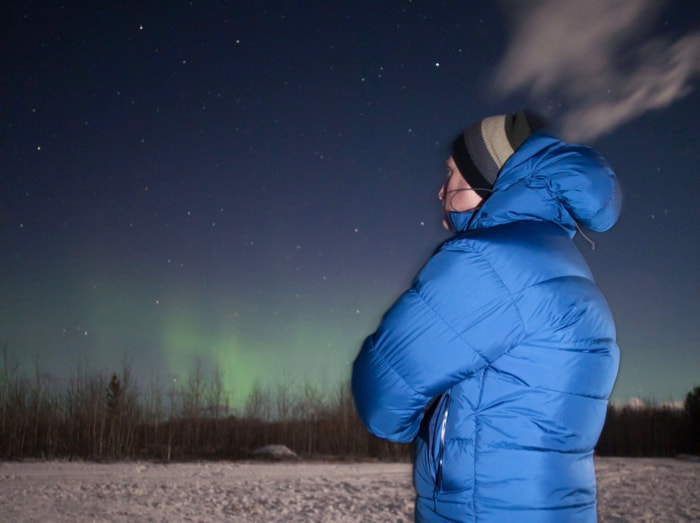
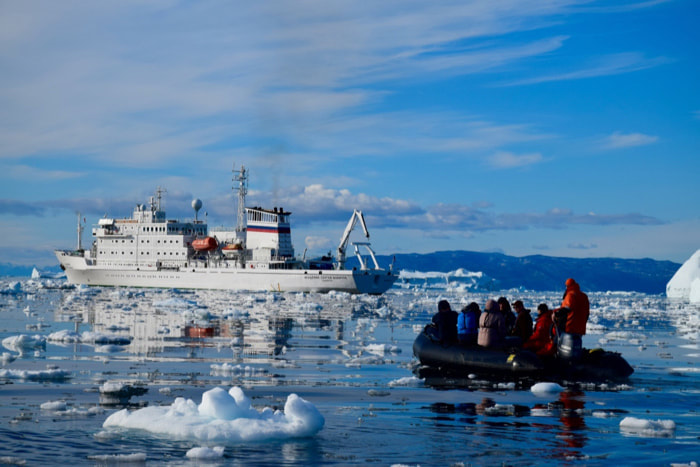
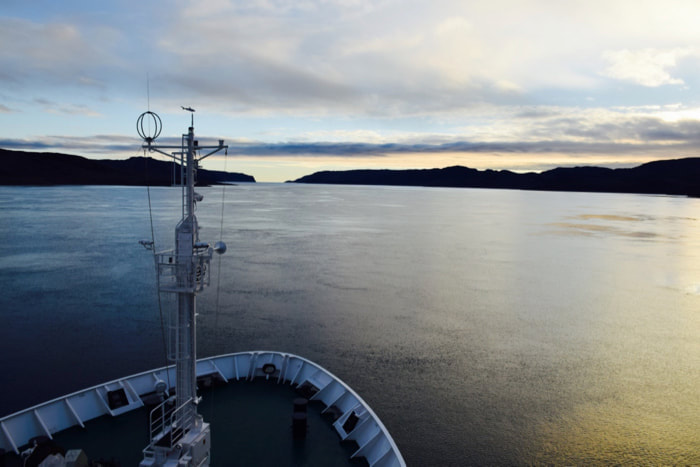
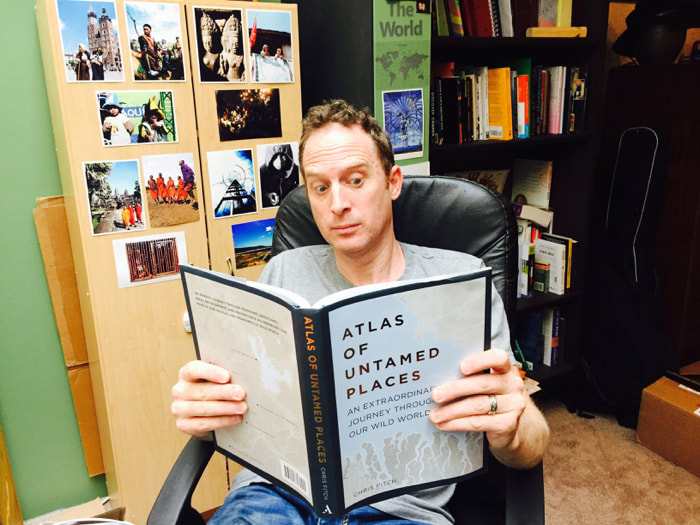










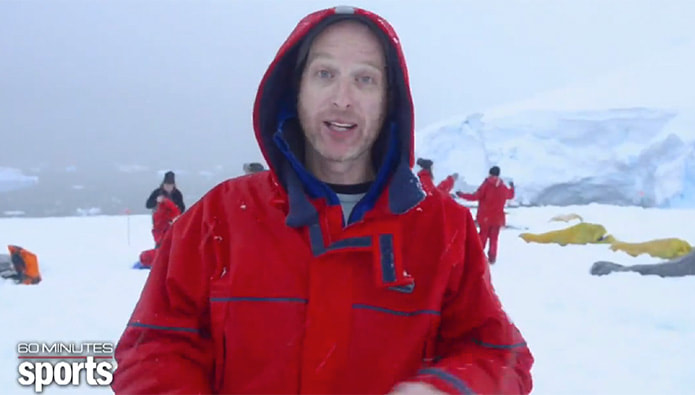
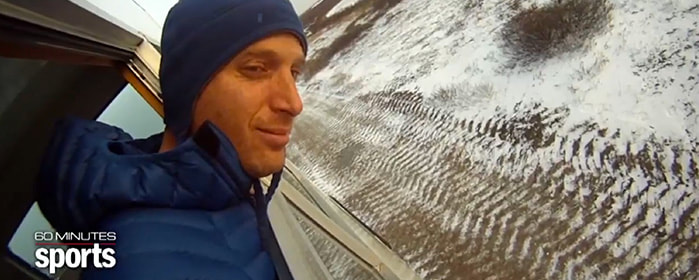
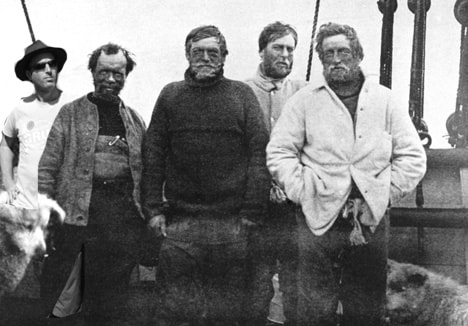
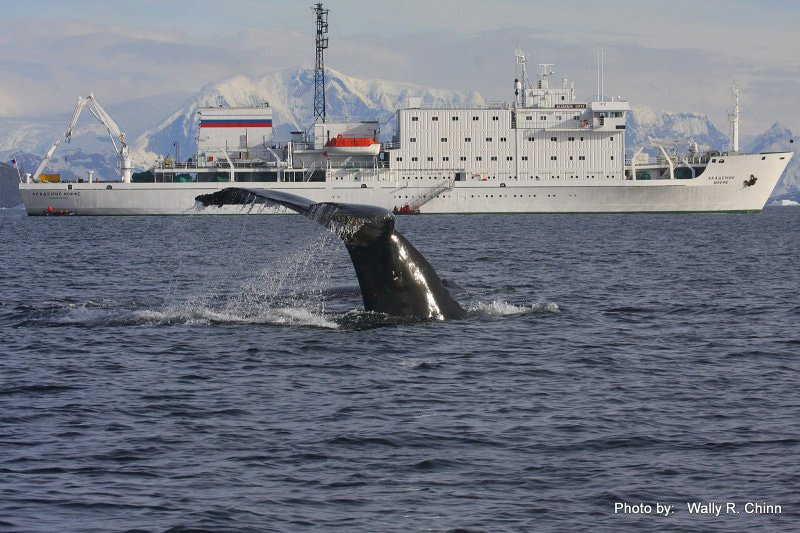
 RSS Feed
RSS Feed

